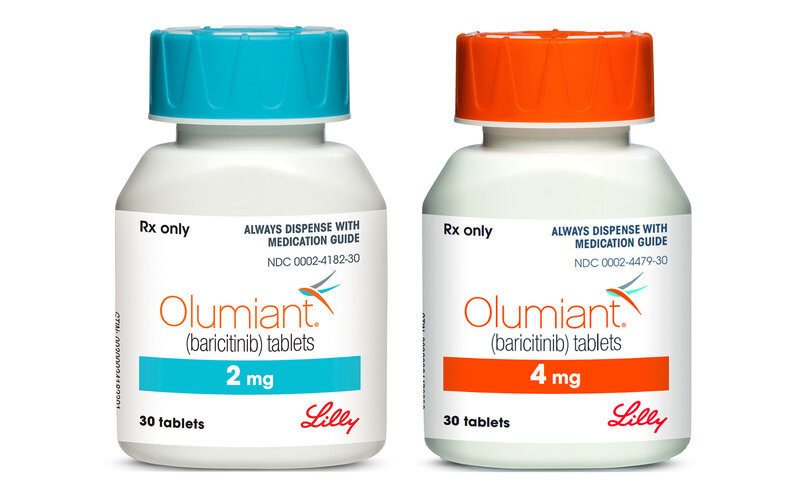Side effect of Baricitinib
Note, however, that the drug can have side effects. For example, the most common are infections of the upper respiratory tract. But also headaches, acne, and high cholesterol. Sometimes we can notice an increase in the presence of the enzyme called creatine kinase.
You should know that this drug is produced by the American pharmaceutical company Eli Lilly. In addition, it is marketed under the name: Olumiant. Also, Baricitinib had already been authorized and used to treat rheumatoid arthritis. Recently its authorization was extended to patients with a severe form of Covid-19.
Following this FDA clearance, Nicole Friedland, President and CEO of the National Alopecia Areata Foundation (NAAF) said:
“This approval marks an important milestone with the first-ever FDA-approved systemic treatment for patients with alopecia. They face significant challenges every day, including limited knowledge of the disease. A lack of treatment options and social stigma”.
Baricitinib in France and in Europe
In Europe, Baricitinib has been authorised since 2020. It is used to treat moderate to severe atopic dermatitis in adults when cream treatments are ineffective.
And to conclude, in France, it has been reserved since 2021 for patients who have not improved with Ciclosporin. Or who cannot take Ciclosporin because of a contraindication or poor tolerance. Note that this same treatment is also authorized for patients with rheumatoid arthritis.
Future Directions and Considerations
While the potential benefits of Baricitinib for hair loss and hair transplant treatments are encouraging, further research is still needed to fully understand its efficacy and safety profile in these specific applications. Clinical trials involving human subjects are ongoing, and results will shed more light on the drug’s potential.
It is important to note that the FDA currently approves Baricitinib for treating rheumatoid arthritis and not specifically for hair loss or hair transplant procedures. Therefore, individuals interested in exploring Baricitinib as a treatment option for hair-related concerns should consult a qualified healthcare professional who can assess their situation and provide personalized advice.
Conclusion
Baricitinib, a JAK inhibitor primarily used for rheumatoid arthritis, shows significant potential as a treatment option for hair loss and hair transplant procedures. Its anti-inflammatory effects and ability to stimulate hair regrowth offer hope to those seeking effective solutions for their hair-related concerns. As research continues to unfold, Baricitinib may pave the way for innovative and non-invasive hair restoration treatments, improving individuals’ lives and confidence worldwide.
When it comes to hair loss treatments and hair transplant procedures, finding a reputable clinic with experienced professionals is crucial. Look no further than HairBack Clinic. We are a leading hair transplant clinic in Turkey with a stellar reputation for providing exceptional results and restoring hair confidence. With a team of skilled surgeons, cutting-edge technology, and a patient-centric approach, we offer comprehensive hair loss treatments tailored to each individual’s unique needs. Schedule your free consultation today!


